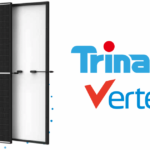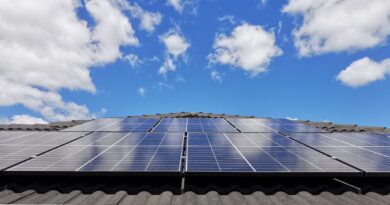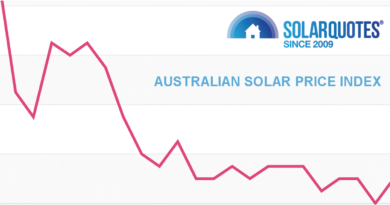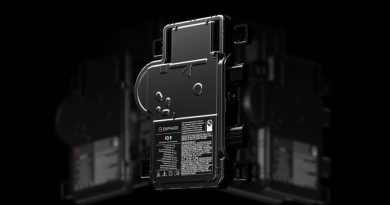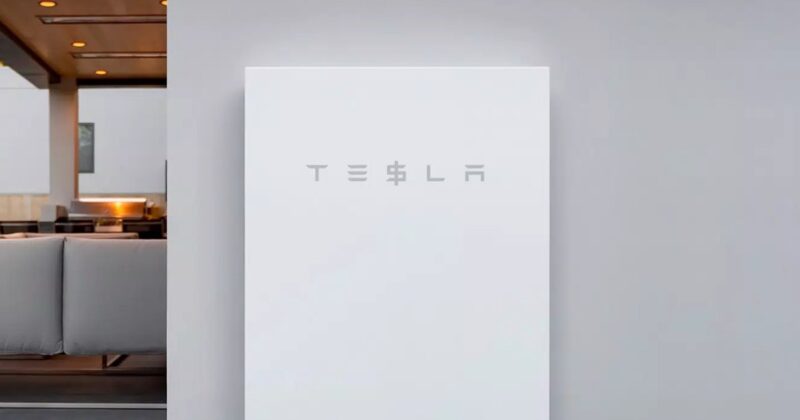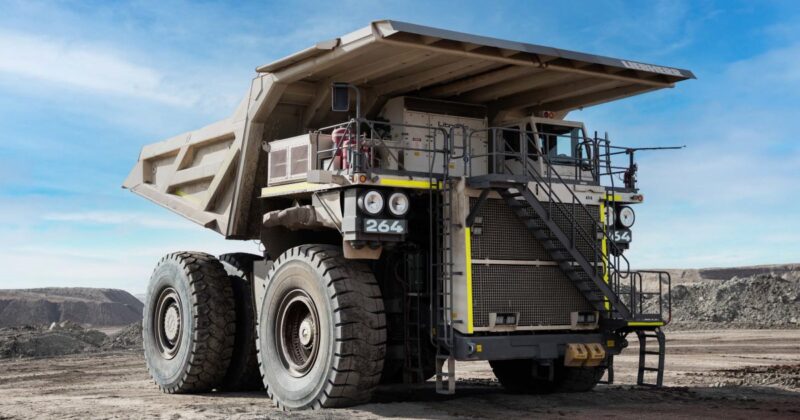Trina Warranty Dispute Has More Questions Than Answers

Here’s a solar warranty story with so many unanswered questions it could easily fill a TV episode of ‘Unsolved Mysteries’.
A SolarQuotes reader contacted us recently with a rooftop solar dispute in which there was a line of businesses doing a great job of ‘passing the hot potato’ but no one prepared to take ownership of the problem.
Our intrepid reader, fed up and disappointed with his lack of support for Trina’s Warranty, eventually decided to take a pragmatic approach and rectify the problem himself.
The Story Goes Something Like This
Back in 2012 our SQ reader, Jeffrey, had a rooftop solar system installed at his house in Tamworth NSW by a franchisee of a well-known national solar company. The 10 kW system consisted of 40 x 250 W Trina solar panels and two Sunnyboy 5000 grid-tied SMA inverters.
An Unwelcome Hail Storm
Everything was hunky-dory until a nasty hail storm decided to dump on his roof in 2019. Hail storm? That surely would wreck his solar panels! Or would it? The mystery begins.
The roof damage was purely cosmetic, so Jeffrey decided to wait with his insurance claim because, due to recent floods, there were many other worthy recipients of insurance dollars that were in the queue.
After about 12 months he decided to proceed with the insurance claim. The whole house had to be reroofed, and obviously, the panels had to come off to complete the work. As far as Jeffrey was aware, his solar panels had been ticking along nicely the whole time.
His insurance company NRMA engaged a local solar company (different to the install company) to remove and test all panels. The whole lot tested OK, so the roof was replaced and solar panels were reinstated. All good… for a while.
The Problems Begin
Around November 2022, Jeffrey noticed a fault light on his inverter. This was accompanied by a warning in his Sunny Home Manager app indicating that something was wrong with his PV system, and more information could be found in the system log. After an hour or so the fault cleared.
The same thing happened a couple of months later, gradually becoming more prevalent, and so by January this year it was every week. Then it got to the point where it was every single day, and then for most of the day. By that time Jeffrey, being the patient man he is, decided to act and call the insurance company and let them know something wasn’t quite right.
NRMA re-engaged the aforementioned solar company to come out and do another inspection to see if they hadn’t accidentally pinched any wiring, or check to see if the fault was in the inverter or the panels. They completed the second inspection and confirmed that the fault was isolated to four Trina solar panels in one string.
Their findings this time – the panels in question were faulty due to degradation, and not damage from hail. This determination cleared the insurance company of any liability.
Trina’s Questionable Warranty Terms
The solar company then contacted Trina’s head office in Sydney to kick-start the warranty process. Trina emailed back stating their requirements which involved testing and documenting the whole system again, more rigorously, even though it had been done before! This was all to be done at the customer’s expense.
Trina stated that under their warranty terms, they needed every single panel tested, photographs of every serial number, and pics of any corrosion or heat marks or cracking or other defects, photographic proof of test readings for all panels so they can go through and say this panel is within spec, this one is not, etc.
The solar company that did the first two inspections then came back to Jeffrey and told him the bad news, which included removing every single panel again to do the testing! Their quote – in excess of $2,000 to complete a third inspection to the specifications required by Trina Solar!
Sounding a bit over the top?
Jeffery was not a happy man. Why should he have to foot the bill to the tune of $2,000 for another inspection when it had already been inspected and tested by an authorized solar contractor? And then, not knowing the outcome, he may have to pay even more to have new panels installed.
What About The Original Installer?
All this time the company that installed the system hadn’t even been brought into this mess. Just as well, because they didn’t exist anymore! The owner had retired and sold the business. The new business owner/s were still franchisees of the aforementioned well-known national solar brand, however, the details of the contract are unknown, so it’s unclear whether the new franchisees or the franchiser would have any liability under warranty claims anyway.
Jeffery said the only time he contacted the new owners was to track down receipts from the wholesaler that the original business owner had bought the panels from. He said Trina had asked for proof of purchase, and the new business owner/s were quite helpful in tracking down the required paperwork.
Regardless of the proof of purchase documents, by now, Jeffery had reconciled with himself that he wasn’t about to fork out $2,000 to do work that had already been done just on a whim of getting four panels replaced, so he started looking at other options.
Alternative Options
He contacted NSW Fair Trading to see if they could help. Jeffery tells me that the person he spoke to on the phone was next to useless. As far as he could tell, the guy just looked up on a website and said we’ve got this process, and you can lodge so-and-so form, and do this and that. Jefferey thought that would be just a big fat waste of time, and put the idea immediately to bed.
The next option was to purchase some panels himself and have them installed. The problem is that it’s now nearly impossible to get solar panels with the same specifications as his old 250 W ones, let alone the same model. During his previous dealings with Trina, they had informed him that some 265-watt panels were available in one of their warehouses.
Pretty soon this option also disappeared because, similarly to their warranty process, they were asking Jeffery to jump through too many hoops in a convoluted process that involved transferring funds into US dollars, yada yada. Trina wasn’t in Jeffery’s good books so he wasn’t about to bend over backward for them.
Finally, good old Gumtree came to the rescue. Jeffery was able to track down some used 250 W panels that had similar specifications to his faulty Trina ones. Although not as pretty as his old solar panels, after a lengthy trip down to Newcastle and back, they are now sitting on his roof, and haven’t missed a beat… yet.
This Saga Has More Questions Than Answers
So that’s Jeffery’s story so far. As you can see, the whole saga provides more questions than answers.
Q: Are Trina’s warranty terms unreasonable, asking for more rigorous testing at the customer’s expense, even though the same solar company had previously tested the whole system and concluded that four panels were faulty due to degradation?
A: ?
Q: Regardless of their terms, did someone at Trina think that one through? A giant solar manufacturer with a credible name risking its reputation for four measly solar panels is perhaps not the smartest business decision!
A: ?
Q: Is the solar company engaged by the insurer trying to take advantage of Jeffery by asking an exorbitant amount of money to carry out the testing they already have done and mostly have results for? Is $2,000 a fair figure, or are they trying to wash their hands of this job?
A: ?
Q: Has the insurance company made the wrong determination about the cause of the faulty panels? Despite Jefferey pushing NRMA for a conclusive detailed report, none has been forthcoming – zero transparency. Is it possible that the faulty panels were actually damaged by hail? What protection does an insured person have against an insurer making a line-ball decision in their own favour?
A: ?
Q: Is the original installer somehow liable, considering they provided the warranty in the first place? Is that liability, if one exists, transferable to the new franchisee, or even the franchiser of the well-known solar company of which we have not yet revealed?
A: ?
Someone, please fill in the blanks!
Warranty Vs Reality
Although a warranty may look OK on paper, it doesn’t always play out the same in real life. The exact terms are sometimes open to interpretation or may not even be stated. Consumer law establishes a pecking order but is hardly useful for the average person with limited funds to seek justice. Each person’s situation is unique, and at the end of the day, when things go pear-shaped, a man’s gotta do what a man’s gotta do. Given the same circumstances, I’m sure many of us would have gone down the same pragmatic road as Jeffery.
Original Source: https://www.solarquotes.com.au/blog/trina-warranty-dispute/








